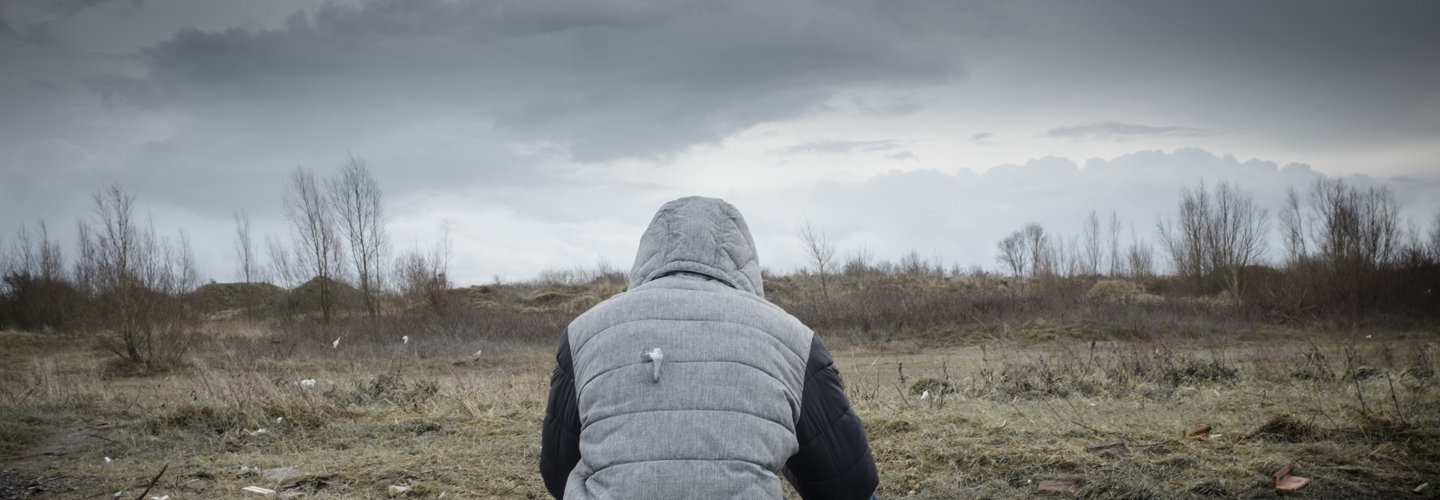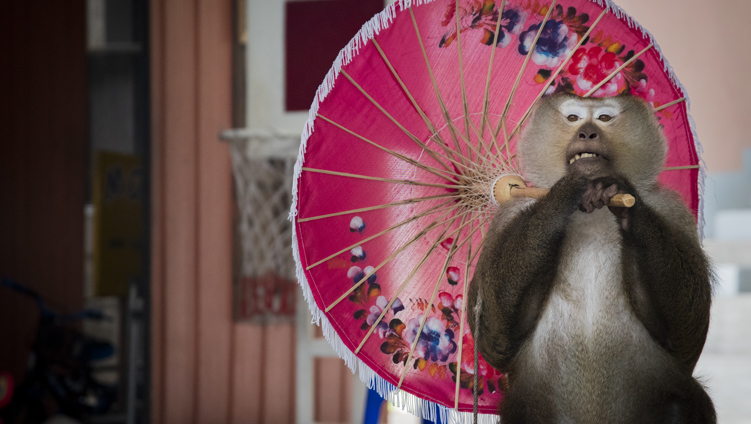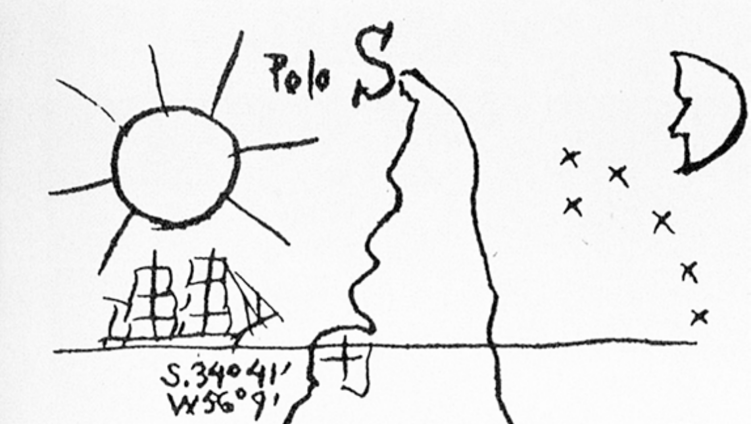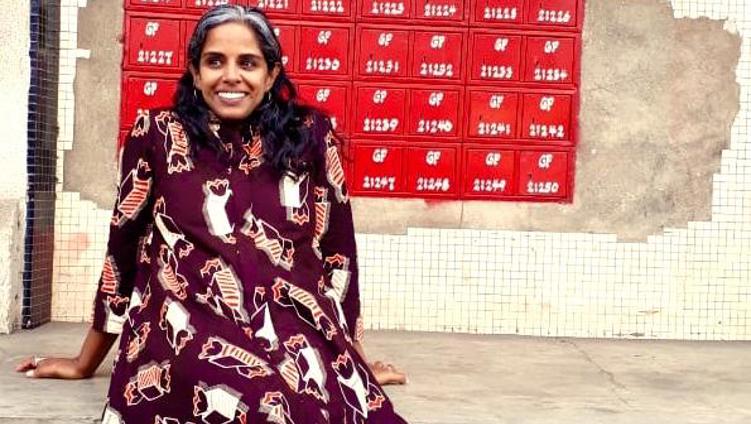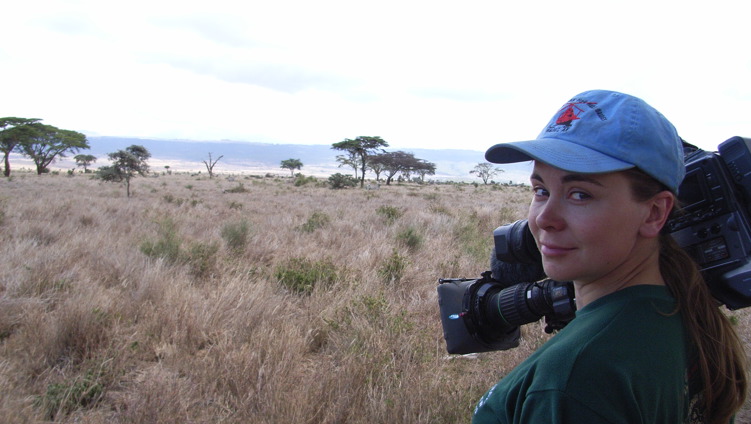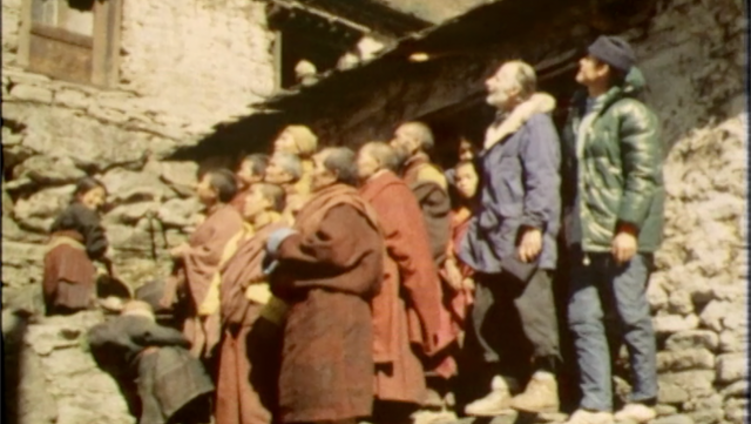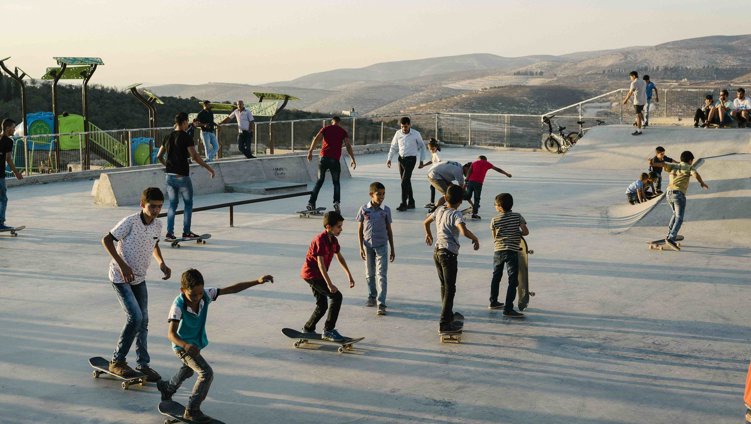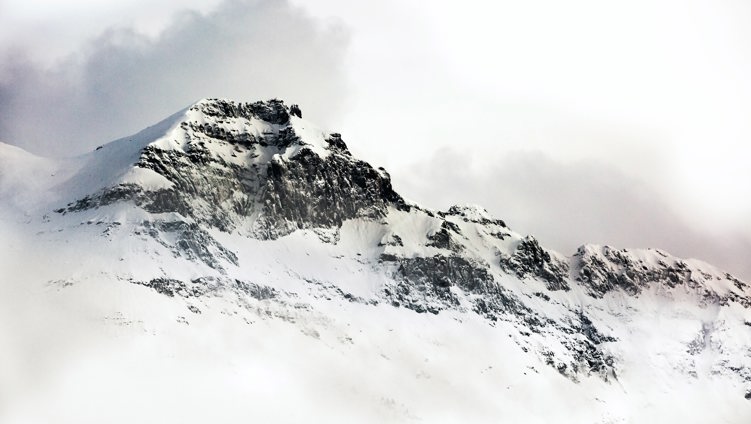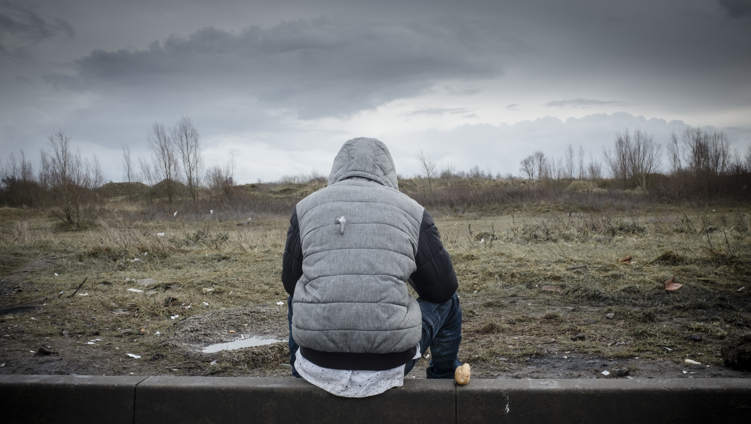
Welcome
Most depictions of adventure involve risk. But what does this mean?
Usually at least one of two things. The first is 'Red Bullism': perilous physical feats performed by athletes jumping from cliffs, flying and flipping down steep terrain or scaling brutal crags. The second is 'Questism': adventurers completing a fun but physically arduous expedition into some unknown.
These adventures can be incredibly compelling, but they represent a form of 'leisure' risk: risk assumed freely out of fun or curiosity, disproportionately by people with privilege. But how else does risk operate in adventure? The Real Risk Takers explores this question, as ever searching for answers with social or environmental consequences.
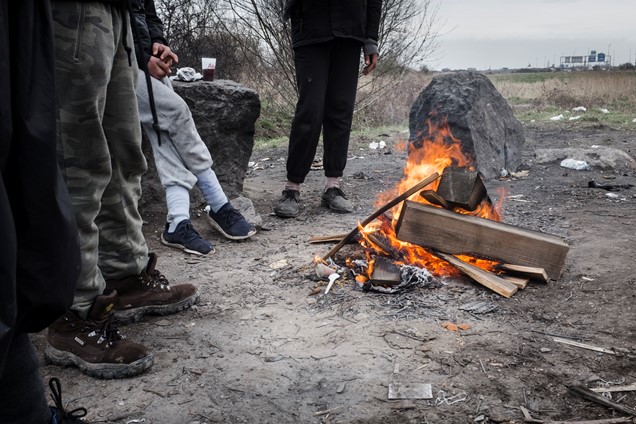
Photo: Stephen F. Evans, in Hannah Parry's piece: Abdullah
The journeys involving the riskiest steps into the unknown go far beyond adventure, which is too frivolous a word to describe them. These stories are important in their own right, and guard against an inflated sense of leisurely adventure as heroic. Hannah Parry’s humanising account of Sudanese refugee Abdullah is one such story.
Social and political risk in adventure can be assumed voluntarily. Amy Jones is a photojournalist documenting abusive animal industries around the world - work that involves infiltrating powerful organisations and witnessing gory acts. She writes powerfully about her work.
Often the most carefree adventures carry the most risk, because travelling carelessly is most likely to unwittingly impact others. Dr. Anu Taranath’s book, Beyond Guilt Trips: Mindful Travel in an Unequal World, invites us to reconsider our travel through the lens of identity, race, difference and social justice. Writing with deep compassion, Anu explores how we can reduce our burden on other cultures and learn more in the process. She told us more about her work.
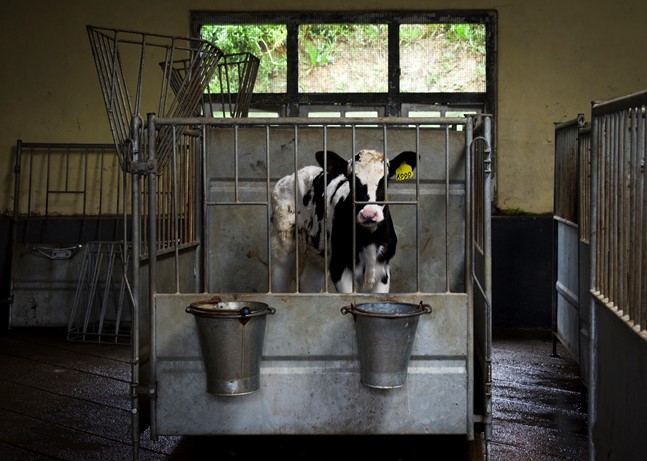 Photo: Amy Jones/Moving Animals, in Amy Jones' piece: The Slaughterhouse
Photo: Amy Jones/Moving Animals, in Amy Jones' piece: The Slaughterhouse
Conversations around decolonisation may be growing, but this isn’t a new conversation. Canadian outdoor educator Bob Henderson writes in this Edition about the fascinating ‘anti-expedition’ of 1971, undertaken by three Norwegian mountaineers. The aim? To not climb a sacred mountain.
The risks of complacency are also embedded in seemingly innocuous items, like maps. Tempting to see as objective representations of reality, maps are in fact subjective interpretations with powerful consequences. But a growing group of radical geographers, activists and artists are exploring the risks and possibilities of radical mapping. Our Editor Sam Firman delves into the world of counter cartography.
Belinda Kirk is another leading thinker on the risks of not doing things - in this not adventuring. Drawing on two decades of leading expeditions and researching hunter-gatherers, neuroscience and psychology, her new book Adventure Revolution argues that adventure is so essential to wellbeing that to not adventure is far riskier than adventuring. We asked her to elaborate.
But this Edition doesn’t mean to suggest that physical risks in adventure can’t be serious and inspiring. On this note we sat down with pioneering vision-impaired freeskier and multiple Paralympic gold medalist Mac Marcoux, and his guide Tristan Rodgers, to discuss the particulars of vision-impaired skiing and what the future holds for vision-impaired freeskiing.
Finally, we finish with a call to action to support organisations using skateboarding as a tool of empowerment despite a number of risks. This work is in particular danger in Afghanistan, with the Taliban's re-rise to power and their prohibition on women's sport.
Stay risky, in the right ways!
The Team @ Adventure Uncovered.
_______
We hope you enjoy this Edition. To help us improve them moving forwards, we recently launched a Patreon. We explain our thinking here, and you can offer support here in exchange for an array of rewards. 100% of revenue will go directly to paying Editions contributors. We don't keep a penny. Please kindly consider becoming a Patreon if you read and like our content regularly - thanks!
Most depictions of adventure involve risk, but typically a form of leisurely risk assumed freely out of fun or curiosity. The Real Risk Takers explores the question of where else risk plays out in adventure, as ever searching for answers with social or environmental consequences.
Read all of Edition 11 below...
Explore more
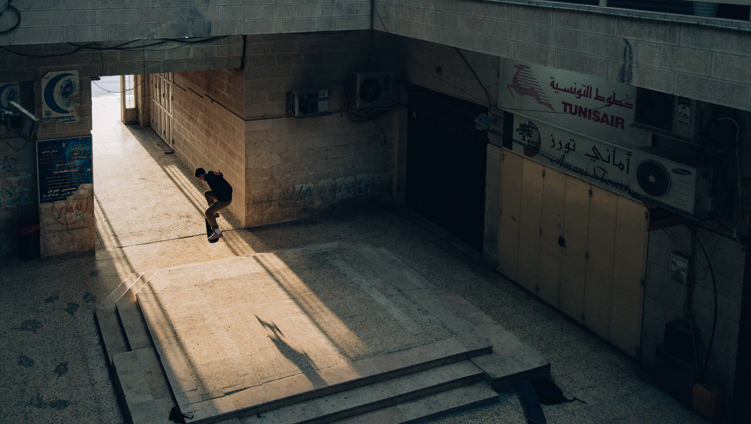
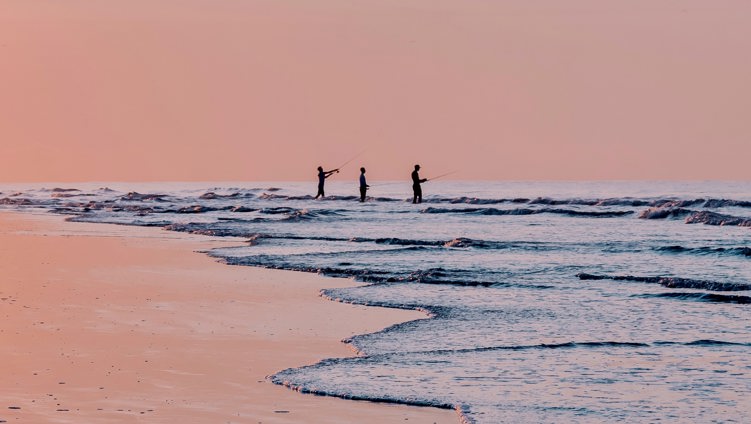
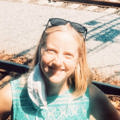
Hannah Parry
Hannah Parry is a journalist, blogger, volunteer aid worker, and musician. She has seen, first-hand, the atrocities committed by authorities, and she has met the most interesting, kind and friendly people. A break from work in London as a church organist led to the creation of her travel blog Hannah the Traveller [hannahparry.co.uk]. Opening her eyes to the world meant seeing the bad as well as the good and she has been involved in humanitarian causes ever since.
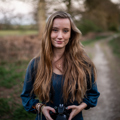
Amy Jones
Amy Jones (she/her) is an animal photojournalist and co-founder of Moving Animals, a media project that works to connect the world to animals’ stories through powerful photography, footage, and journalism. Since 2018, she has worked on the ground across seven different countries to document the plight of animals. Her work has informed and strengthened the campaigns of multiple animal advocacy groups and featured in over 150 media outlets. She deeply believes in the power of photography to create change and start conversations around how we view and treat animals.
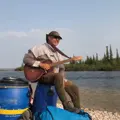
Bob Henderson
Bob Henderson cut his teeth in summer camp canoe tripping programs in Ontario, Canada. He just kept tripping and mostly travels now with his wife Margot and those same 1970’s camp friends. For over 30 years he has taught and travelled with students as an Outdoor Educator in University settings mostly with McMaster, but most recently with University of Edinburgh and Laurentian Universities. He can be found happy perched on the Oak Ridges Moraine.
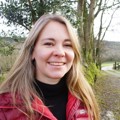
Belinda Kirk
Belinda Kirk is an explorer and the leading campaigner promoting the benefits of adventure on wellbeing. For the past twenty-five years, she has led dozens of international expeditions and remote filming trips. Belinda has walked through Nicaragua, sailed across the Atlantic, searched for camels in China’s Desert of Death, discovered ancient rock paintings in Lesotho and gained a Guinness World Record for rowing unsupported around Britain. She has led numerous youth development challenges, pioneered inclusive expeditions for people with disabilities and managed scientific research missions in the Amazon, Sinai and Alaska. In 2009, Belinda established Explorers Connect, a non-profit organisation connecting people to adventure and has encouraged 30,000 ordinary people to engage in outdoor challenges. In 2020 she launched the first conference to explore the positive impact that adventurous activity has on wellbeing. She has written Adventure Revolution: The life-changing power of choosing challenge. It’s the first book to explain why adventure is essential to wellbeing. Drawing on lessons learnt from leading groups into the wilderness and the latest findings in neuroscience and psychology, Belinda shows how adventure has the power to transform the timid into the confident, the addicted into the recovering, and the lost into the intentionally wandering.
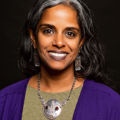
Dr. Anu Taranath
Dr. Anu Taranath brings both passion and expertise to her work as a speaker, facilitator, author and educator. A University of Washington professor for the past 20 years, she teaches about race, gender, equity, and global literatures. As a DEI and racial equity consultant, she offers coaching, training, facilitation and other types of partnerships. Her book Beyond Guilt Trips: Mindful Travel in an Unequal World was named a Finalist for four book awards including the Washington State Book Award and included in Fodor’s Travel’s “13 Books to Inspire Your Travels” and Oprah Magazine’s “Best 26 Travel Books of All Times.” Dr. Anu and her book have been profiled in Newsweek, YES!, AFAR, Bitch, Mindful and National Geographic magazines.

Mac Marcoux
At just 15-years-old, Mac Marcoux was a Para-Alpine World Championships silver medalist. The Sault Ste. Marie born skier joined the team that season and finished his rookie World Cup year with a trio of podiums. In 2014, he made his Paralympic debut, and since then he has won five medals. Marcoux was the 2014 Para-Alpine Crystal Globe winner in both speed disciplines. He won his first of two overall Crystal Globes in 2018. In 2019/20, Marcoux and his guide Tristan Rodgers won eight gold medals en route to another Crystal Globe title. Mac is visually impaired, but that has not stopped him from dominating the skiing world while also hurtling down hills on his mountain bike in the offseason.

Tristan Rodgers
Tristan Rodgers’ ski career runs parallel to eight-time Paralympic medalist Mac Marcoux, who he has been guiding since 2018. From Ottawa, Canada, Tristan raced with the Mont Tremblant Ski Club before pursuing an engineering degree at the University of Ottawa. Following his second year of studies, he put his schooling on hold to guide Marcoux. Combining the teamwork he learned through engineering school and his past skiing racing experience, he is a perfect partner for Marcoux while the two travel at speeds upwards of 100KPH. Like Marcoux, Rodgers has a passion for mountain biking, something the two can be found doing through the offseason.
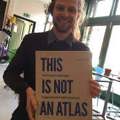
Laurenz Virchow
Laurenz Virchow is a member of kollektiv orangotango, a platform of geographer activists who support initiatives and actors that seek to instigate social change. The collective conducts emancipatory educational work, various political and artistic interventions as well as collaborative publishing projects. Laurenz is inspired by critical pedagogy, action research, and radical geography. He enjoys learning based on trial and error, through collectively mapping neighbourhoods, by trying forms of solidarity-based living, and sharing enthusiasm. Being a "Spielkind", he sometimes plays pocket poet.
